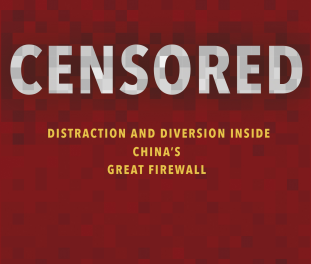Highlights
- Neglect at your peril
- Too much grease
- Cross-border effects
- Bright Side (Part I)
- Bright Side (Part II)
- Accountable funding
- TAI Spotlight
Yes, the TAI Weekly is back from its August break! All things transparency, participation, and accountability related once more in your inbox on a Tuesday. World events certainly did not take a pause while we were absent. Way too much to cover all, but here goes…
Neglect at your peril
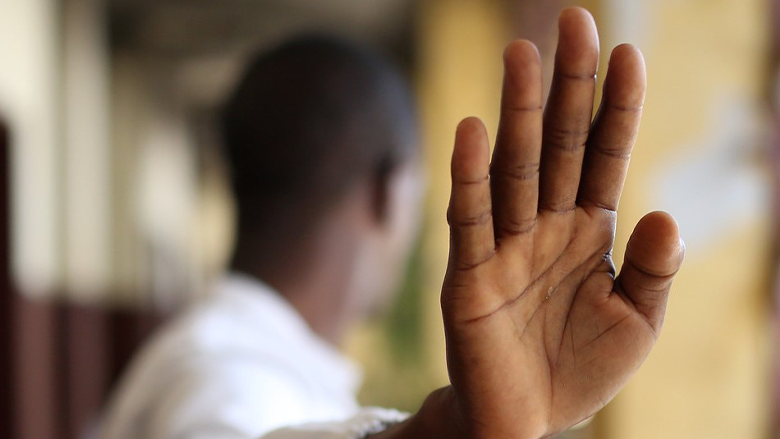
Photo Credit: World Bank Group
The desperate events in Afghanistan have drawn attention to endemic corruption and the challenge of sacrificing good governance for “stability”. This piece from The Economist is just one of many highlighting how corruption hollowed out the Afghan state.
No surprise that Alexi Nevalny has been prompted to remind us from a Russian prison cell that the world that “only action against corruption can solve the world’s biggest problem.” He demands five steps anticorruption plan from the West: create an anti-corruption authority, prosecute corrupt officials, sanction oligarchs, identify corruption-spreading states, and enforce transparency.
Essential Listen: This episode of The Daily podcast unpacks another complex situation where short-term desire for stability risks undermining any effort to take on systemic corruption – in this case looking at the links between migration and corruption effects in Central America.
Too much grease
One factor undermining faith in the Afghan government was the demand for bribes from public servants. Sadly, Afrobarometer survey data reveals that bribe paying for access to basic services is prevalent in many Africa countries. How does this look in practice? See Chatham House’s recently published reports (commissioned by TAI member MacArthur Foundation) on pass-mark bribery in Nigerian schools and religion and corruption.
How to improve public financial management (PFM), not least to minimize potential for graft? Gundula Loffler and Tom Hart touch on this as they lay out what’s new, missing and next in PFM research – first in a new working paper series.
Recommended Long Read #1: When people want punishment: Retributive justice and the puzzle of authoritarian Popularity
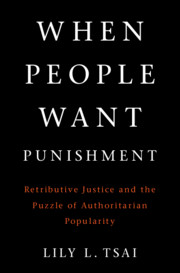
A fascinating new book from long-time TAI member collaborator, Lily Tsai of MIT Gov/Lab draws on rich empirical evidence from in-depth fieldwork, original surveys, and innovative experiments that provide a new framework for understanding authoritarian resilience and democratic fragility.
Cross-border effects
Back to the transnational dimensions that undermine local outcomes and a case in Central African Republic. The Sentry reveals how French sugar and beverage giant Castel Group relied on support from brutal militias to protect its market shares. The company says they’re going to investigate.
Meanwhile, Africa Nature Investors Foundation and Environmental Investigation Agency explore wildlife crime in Nigeria and flag 15 recommendations for authorities. Wildlife is not the only form of cross-border leakage. Global Financial Integrity explain how real estate is used for money laundering in G7 countries and why America is kleptocrat’s dream. Quick insight – 82% of reported cases of real estate money laundering in the US involved money with foreign origins in the last five years – the majority from Latin America. More than half of the U.S. cases involved politically exposed persons, with Gambia and Congo in the top 5 places of origin.
Elsewhere, murkiness in Mexican telecoms with claims of confidential payments to a Dutch-German structure in 7 Latin American countries (original story in Spanish), while Nacho Carretero and Arturo Lezcano expose how Marbella, Spain became a haven of cross-border organized crime.
Al Jazeera’s investigative unit reveals how English football clubs can be bought by convicted criminals and become vehicles to launder dirty money. You may find it is not such a beautiful game when you watch this documentary on the murky world of football financing.
Bright Side (Part I)
What cause for hope? EU and US watchdogs continue to impose tougher penalties for money laundering with almost $1billion in fines in the first half of the year, on track to hit last year’s total of $2.2billion Yet, are fines changing behaviors or just shrugged off by big banks and their customers?
Nonetheless, regulators continue catch-up efforts vs corporate innovation. They are increasingly looking at know your customer/anti-money laundering practices at fintechs. One remaining gap is flagged by the Financial Times editorial team who call for stepped up crypto currencies regulations, not least with minimum checks for anti-money laundering and greater alignment of standards across jurisdictions.
What of abuse of public funds? The new European Union Prosecutor’s Office has already processed 1000 reports in its first three months, but there are questions as to whether it is sufficiently resourced to take on major fraud (a cause for worry as EU starts handing out its 800billion euro Recovery Fund.)
Bright Side (Part II)
Some optimism, too, from Florencia Guerzovich, Alix Wadeson, and Tom Aston who challenge a seemingly prevailing “doom loop” narrative in the TPA sector “despite evidence that our community is more effective and resilient than the narrative suggests.” They offer a barrage of points on evidentiary debates and how to enhance monitoring, evaluation, and learning – their highlighting of gaps in assessing portfolio level impact tying to live debates within TAI.
Collaborative approaches are necessary to make progress on evidence and learning but also hold promise in fundamentals of practice. Max French explores the potential of collaborative governance. Continuing in this vein, Johanna Mair and Thomas Gegenhuber write about how participation from multiple stakeholders in society can generate scalable solutions to difficult problems.
Research in Sierra Leone suggests that citizens are trusting different authorities than public health officials – does that open a pathway to collaborative governance? Another fascinating instance of collaboration in the UK as an NGO, TaxWatchUK joins the government in a case against a big corporation to some effect (reminding us of the TAI scan on civil society roles on tax). Public interest litigation for tax accountability should be a growth area.
Recommended Long Read II: To kill a democracy: India’s passage to despotism
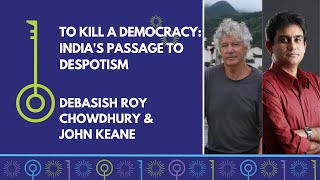
Debasish Roy Chowdhury and John Keane details the much deeper historical roots of the present-day assaults on civil liberties and democratic institutions in India and how lived social injustices and unfreedoms rob Indian elections of their meaning. Watch the authors discuss the book here.
Accountable funding
Check out the recording and resources on ways to strengthen philanthropic accountability, courtesy of EDGE funders. One important application is in regards to advancing racial equity and Piper Anderson urges funders to make accountability a cultural norm and offers practical advice on how to achieve that accountability.
As we think of policy change vs. social change, Christopher Choong Weng Wai says it’s all a question of power. Perhaps Tom Wein’s recent report on dignity in international development can point us to more effective ways of addressing power imbalances and getting to better outcomes on the ground.
Finally, want more insights on what makes for good philanthropic practice? Then get excited that Dana Schmidt is picking up the challenge of writing more short essays to guide us.
Other stories
- When cronyism becomes corruption – Bronwen Maddox worries about the line blurring in the U.K.
- We celebrate ten years of the Global Initiative for Transparency: #10YearsofGIFT.
- IGF releases public consultation draft on tax treaty practice in mining countries – have your say!
- The secret to transforming mining into sustainable development? Governance – Mark Robinson and Rohitesh Dawan
- Philanthropy Can Help Communities Weed Out Inequity in Automated Decision Making Tools – Chris Kingsley and Stephen Plank
- The case for better governance of children’s data – a manifesto – UNICEF
TAI 2021 Semi-Annual Report Wisdom in the Collective: Navigating tricky terrain from authoritarian tech to #shiftthepower in practice
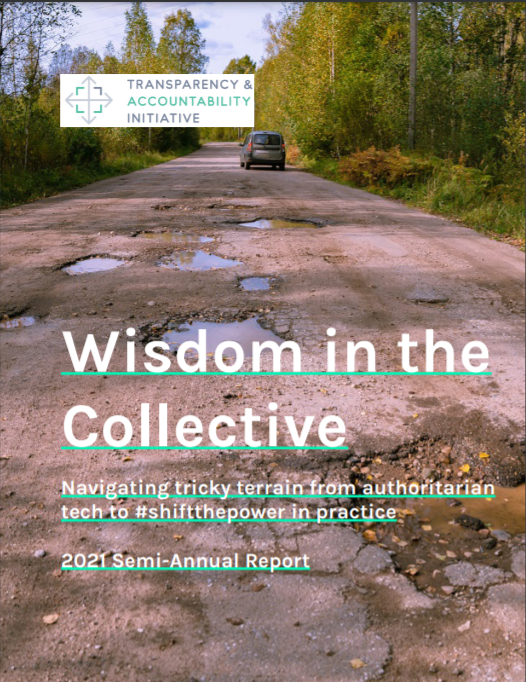
Check out reflections on TAI’s first half of 2021 – our take on navigating shifts in context since the start of the year, how we’ve been doing it (attention to DEIJ, communications, revenue and spend, and more), what we’re learning along the way, progress seen against our MEL plan indicators, a recap of what we have been doing across our strategic outcome areas, and what we are looking forward to it in second half of the year. (This serves as our report to all members – a reminder to encourage funders to agree to shared reporting!)
TPA Full Disclosure
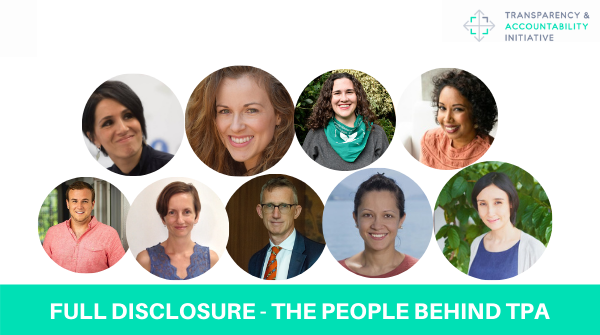
Catch up on the latest interviews in the TPA Full Disclosure series featuring TPA grant makers and grantees around the world.
- Tax Justice Network Senior Researcher, Rachel Etter-Phoya on Wisdom in the Collective: Navigating tricky terrain from authoritarian tech to #shiftthepower in practice,
- Laudes Foundation Labour Rights Team on the highs and lows of embracing transparency in the garment industry.
- Co-Impact’s Director of Learning, Measurement, and Evaluation, Varja Lipovsek on why trust is important to bringing research and evidence to practice,
- World Justice Project’s Killian Dorier and Ted Piccone on advancing and stimulating collaboration among field actors on legislative reforms and the rule of law,
- Prospera-IWF Directors on power imbalances and differentials in women’s fund
TAI Spotlight
Transparency and Accountability Initiative launched the set of products from our evaluation of TAI member contributions to beneficial ownership reform. Check out the overall evaluation report, 8 mini case studies, and the methods note reflecting on the feasibility of measuring funder contributions to advocacy wins.
Chandler Foundation has published a living document to identify what is happening at the intersection of systems change and philanthropy. All interested partners will continue to add to this resource reference document – so reach out to contribute to this living document to bring greater visibility to the Systems Change philanthropy world!
Ford Foundation’s Nicolette Naylor and Cecile Richards outline what is needed to make gender equality a sustainable and equitable reality. Also, explore this fascinating report on changes needed in internet governance by the foundation.
Hewlett Foundation’s TPA team shared some possible strategic shifts to their work and lessons from their previous strategies in an interactive report that includes an overview of the shifts in funder priorities and strategies –they will love to hear from you at [email protected]. Watch Sarah Lucas’s take on how local think tanks can save democracy.
Luminate will undergo significant organizational changes by the end of 2023 by focusing more on building their already significant portfolios of work in the global south and exit their domestic work in the global north. Read two fascinating commissions – a mapping of Nigeria’s data and digital rights landscape and research on why some movements succeed and others fail.
MacArthur Foundation awarded almost $80m in grants to organizations working on advancing racial and ethnic justice. The Foundation has also set up a civic defence fund to assist journalists, civil society, and private sector actors that are facing reprisals or attacks emanating from blowing the whistle or speaking out against corruption in Nigeria.
Open Society Foundations welcomes International Monetary Fund (IMF) pandemic $650 billion liquidity fund for nations at greatest risk as they provide a $10 million Afghanistan emergency fund to support Afghans in grave danger by expanding immediate protection opportunities. Other donors are invited to join these efforts. Meantime, Chair George Soros calls for US legislation to require asset managers to invest “only in companies where actual governance structures are both transparent and aligned with stakeholders.”
Foreign Commonwealth and Development Office (FCDO) says the UK has imposed a package of trade, financial and aviation sanctions on Belarus, in response to the continued undermining of democracy and human rights violations by the Lukashenko regime.
Job Listings
- Job postings at Hewlett Foundation – Ongoing
- Job postings at MacArthur Foundation – Ongoing
- Job postings at Open Society Foundations – Ongoing
- Job postings at Luminate – Ongoing
- Job postings at Ford Foundation– Ongoing
- Job postings at FCDO – Ongoing
Calls/Opportunities
- Join the ODI’s Marketing and Communications framework for the next four years – September 13, 2021
- USAID’s Development Innovation Ventures (DIV) grant funding – September 30, 2021
- West Africa Civil Society Institute (WACSI) call for papers and articles – Open year-round
- Free digital security training– Ongoing
- Call for proposals: Informality, tax, and the state – Proposals accepted on a rolling basis
Calendar
- The global is local – Linking the fight against corruption with fair housing in the U.S. – September 9, 2021
- Global Investigative Journalism conference – November 3-5, 2021
- National Tax Association conference – November 18-20, 2021
- The Summit for Democracy – December 9-10, 2021
- Open Government Partnership global summit – December 13-17, 2021
Want to stay updated on happenings around the TPA sector, sign up for our newsletter here


